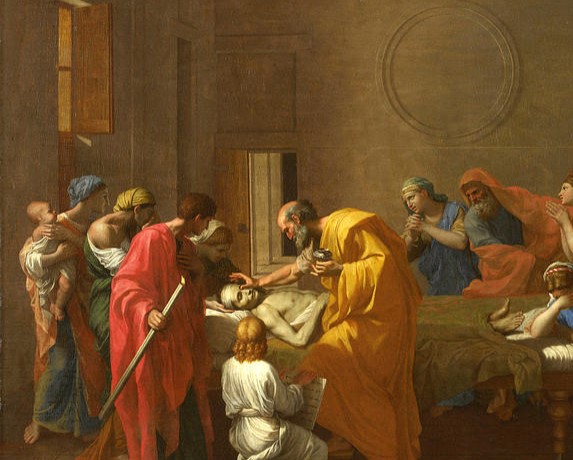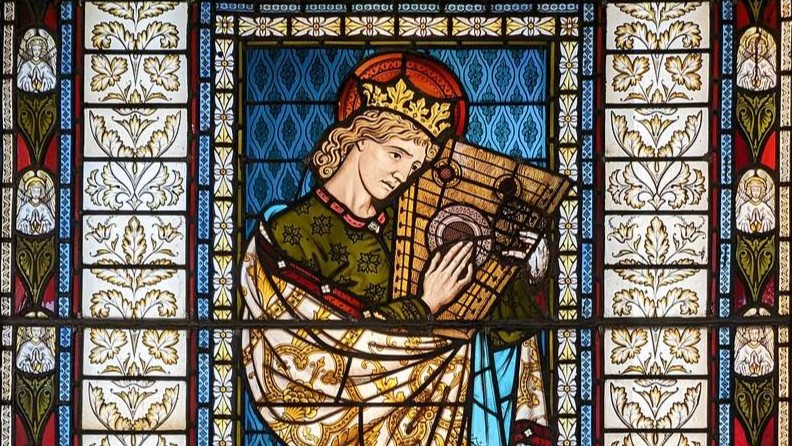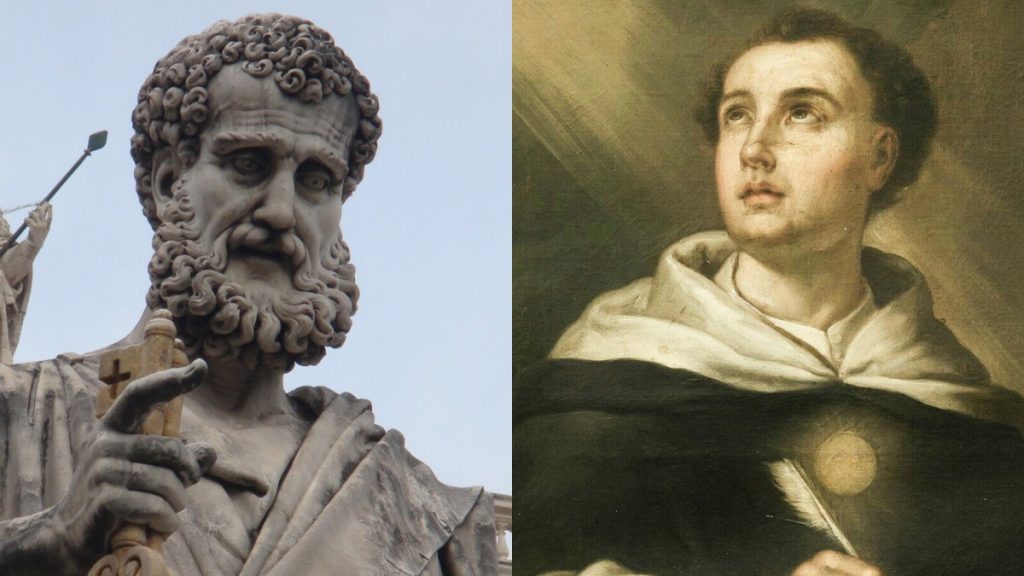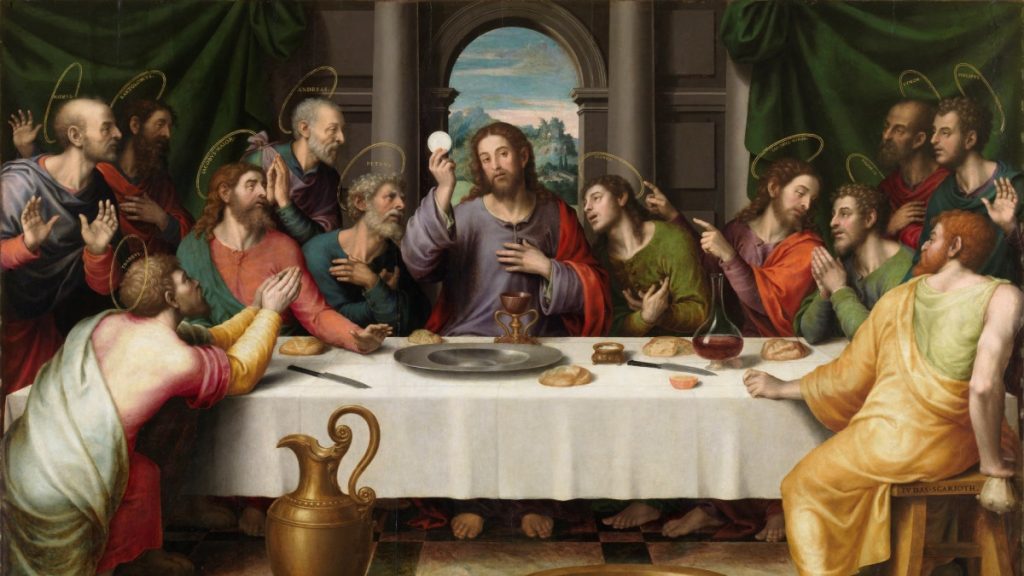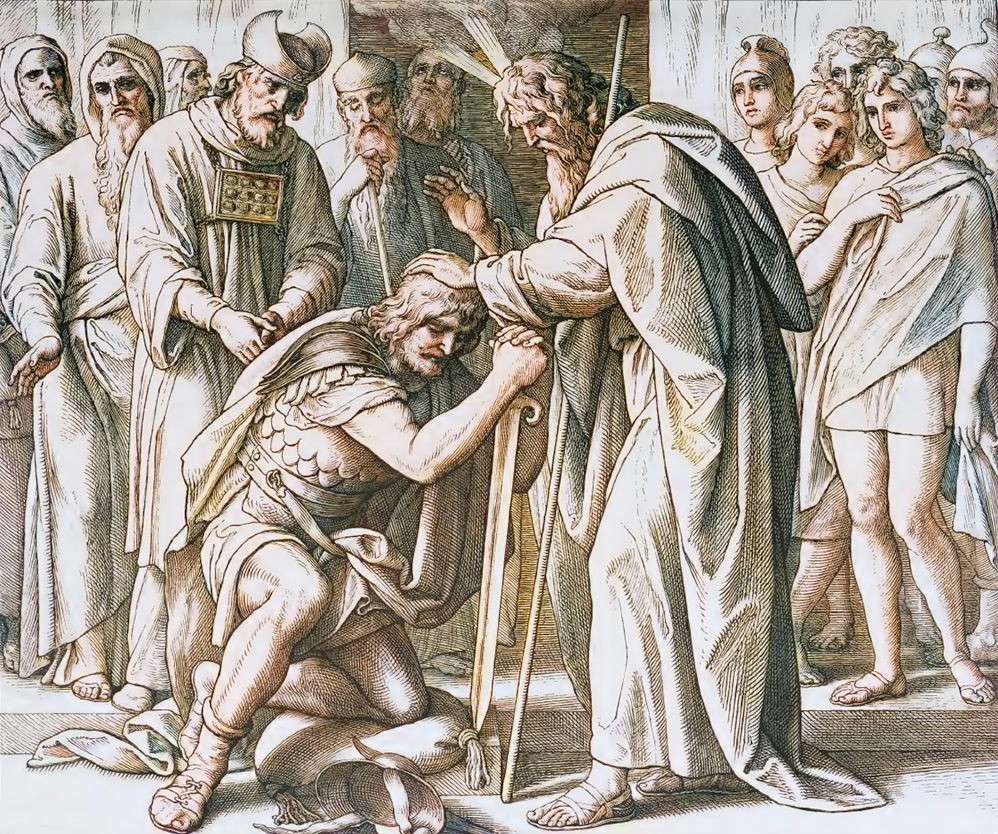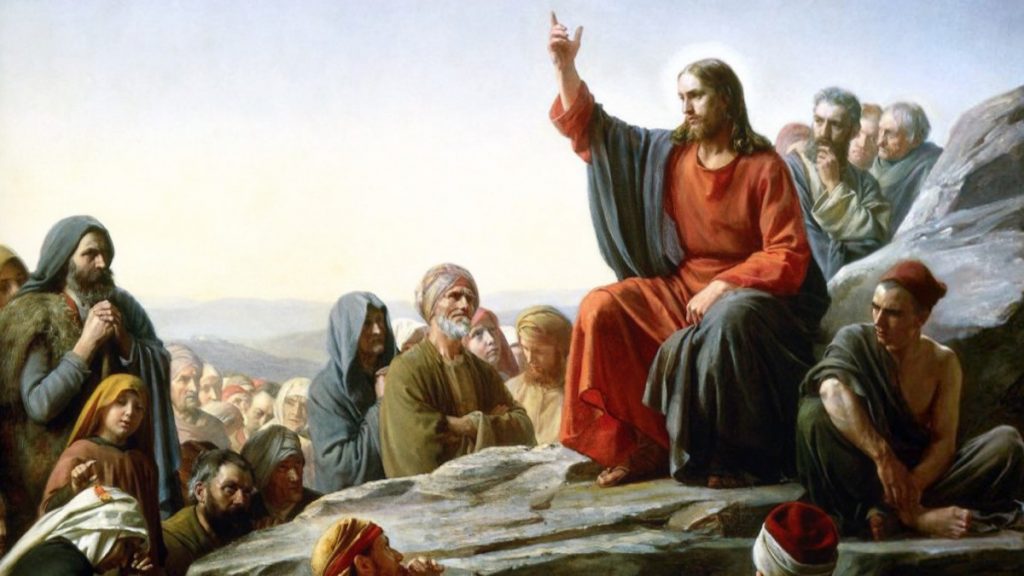(Updated April 11, 2025)
This Quote Archive is on the Sacrament of Last Rites. Each Archive is a treasury of original source quotes on various topics relevant to the Catholic Faith, and addressed in Becoming Catholic articles. They are intended to help people explore the “gold, silver, and precious gems” that have been mined and sifted from the sources of the Great Tradition by Eternal Christendom as a labor of love for our readers, and all seekers of Truth. They are periodically updated as more research is completed.
Origen (c. 184-c. 253) | EAST
Origen, Homily 2 on Leviticus (c. 249)1
(Ch. 4, §§4-5)
(§4) …Now hear how many are the remissions of sins in the gospel.
(§5) …And there is still a seventh remission of sins through penance, although admittedly it is difficult and toilsome, when the sinner washes “his couch in tears” (Ps. 6:7) and his “tears” become his “bread day and night” (Ps. 41:4), when he is not ashamed to make known his sin to the priest of the Lord and to seek a cure according to the one who says, “I said, ‘I will proclaim to the Lord my injustice against myself,’ and you forgave the impiety of my heart” (Ps. 31:5). What the Apostle James 47 | 48 said is fulfilled in this: “But if anyone is sick, let that person call the presbyters of the Church, and they will place their hands on him, anointing him with oil in the name of the Lord. And the prayer of faith will save the sick person, and if he is in sins, they will be forgiven him” (Jas. 5:14-15).
St. Serapion of Thmuis (died c. 360) | EAST
St. Serapion, Bishop Serapion’s Prayerbook (c. 350-360)2
Prayer 17: Prayer in Regard to Oil of the Sick, or Bread, or for Water
We invoke thee who has all authority and power, the Savior of all men, father of our Lord and Savior Jesus Christ, and pray thee to send healing power of the only-begotten from heaven upon this oil, that it may become to those who are being anointed (with it), or are partaking of these thy creatures, for a throwing off of every 77 | 78 sickness and every infirmity [Matt. 4:23], for a charm against every demon, for a separation of every unclean spirit, for an expulsion of every evil spirit, for a driving out of all fever and ague and every infirmity, for good grace and remission of sins, for a medicine of life and salvation, for health and soundness of soul, body, spirit, for perfect strengthening.
St. John Chrysostom (c. 347-407) | EAST
St. John Chrysostom, On the Priesthood
The Jewish priests had authority to release the body from leprosy, or, rather, not to release it but only to examine those who were already released, and you know how much the office of priest was contended for at that time. But our priests have received authority to deal, not with bodily leprosy, but spiritual uncleanness—not to pronounce it removed after examination, but actually and absolutely to take it away. Wherefore they who despise these priests would be far more accursed than Dathan and his company [Num. 16], and deserve more severe punishment…
For I return once more to the point from which I started: not in the way of chastising only, but also in the way of benefiting, God has bestowed a power on priests greater than that of our natural parents. The two indeed differ as much as the present and the future life. For our natural parents generate us unto this life only, but the others unto that which is to come. And the former would not be able to avert death from their offspring, or to repel the assaults of disease; but these others have often saved a sick soul, or one which was on the point of perishing, procuring for some a milder chastisement, and preventing others from falling altogether, not only by instruction and admonition, but also by the assistance wrought through prayers. For not only at the time of regeneration [baptism], but afterwards also, they have authority to forgive sins. “Is any sick among you?” it is said, “let him call for the elders of the Church and let them pray over him, anointing him with oil in the name of the Lord. And the prayer of faith shall save the sick, and the Lord will raise him up: and if he have committed sins they shall be forgiven him” (Jas. 5:14-15). Again: our natural parents, should their children come into conflict with any men of high rank and great power in the world, are unable to profit them. But priests have reconciled, not rulers and kings, but God Himself when His wrath has often been provoked against them.
St. Pope Innocent I (died 417) | WEST
St. Pope Innocent I, Letter to Decentius, Bishop of Gubbio (March 19, 416)3
Since your love prompts you to seek advice on this as on other matters, my son Celestine the deacon also mentioned in his letter that Your Excellency had put up for discussion the text in the epistle of St. James the Apostle: “If anyone among you is sick, let him call the presbyters, and let them pray over him, anointing him with oil in the name of the Lord. And the prayer of faith will save the sick man, and the Lord will restore him, and if he has sinned, He will forgive him” (Jas. 5:14). There is no doubt that this ought 322 | 323 to be understood of the faithful who are sick and who can be anointed with the holy oil of chrism which is prepared by a bishop. It is not just priests but all as Christians who may be anointed with this oil when it is necessary for themselves or their families. However, it seems to Us that an idle point is raised when doubt is expressed in the case of a bishop about something that is certainly permitted to priests. For the very reason that it was assigned to priests is that bishops are burdened with other business and are not able to go to all the sick. However, if a bishop is able or thinks someone worthy of a visit from him, then he, whose duty it is to prepare the chrism, can without any hesitation bless and anoint the sick with chrism. But the chrism cannot be poured on those doing penance because this is one of the sacraments. How is it conceivable that one sacrament can be granted to a person to whom the rest of the sacraments are denied?
St. Caesarius of Arles (c. 468/470-542) | WEST
St. Caesarius of Arles, Sermon 13: A Sermon Necessary in Parishes4
(§3)
As soon as some infirmity overtakes him, a sick man should receive the Body and Blood of Christ, humbly and devoutly ask the presbyters for blessed oil, and anoint his body with it. Thus will be fulfilled in him what we read: “Is anyone among you sick? Let him bring in the presbyters, and let them pray over him, anointing him with oil. And the prayer of faith will save the sick man, and the Lord will raise him up, and if he be in sins, they shall be forgiven him” (Jas. 5:14-15). See to it, brethren, that a man hastens to the health and the remission of his sins.
Ecumenical Council of Nicaea (325)
Concerning the departing, the ancient canonical law is still to be maintained, to wit, that, if any man be at the point of death, he must not be deprived of the last and most indispensable Viaticum [Eucharist]. But, if any one should be restored to health again who has received the communion when his life was despaired of, let him remain among those who communicate in prayers only. But in general, and in the case of any dying person whatsoever asking to receive the Eucharist, let the Bishop, after examination made, give it him.
Council of Carthage/African Code (419)
(Can. 7; Can. 4 of the Synod of 387 or 390) Aurelius the bishop said: If anyone had fallen into peril of death during the absence of the bishop, and had sought to reconcile himself to the divine altars, the presbyter should consult the bishop, and so reconcile the sick man at his bidding, which thing we should strengthen with healthy counsel. By all the bishops it was said: Whatever your holiness has taught us to be necessary, that is our pleasure.
(Epitome of Can. 7) A priest desiring to reconcile anyone in peril to the sacred altars must consult the bishop and do what seems good to him.
Footnotes
- Origen, Gary Wayne Barkley, trans., The Fathers of the Church, Vol. 83: Origen, Homilies on Leviticus 1-16 (Washington, DC: The Catholic University of America Press, 1990), 47-48. ↩︎
- St. Serapion of Thmuis, John Wordsworth, trans., Bishop Serapion’s Prayerbook: An Egyptian Sacramentary Dated Probably About AD 350-356 (London: Society for Promoting Christian Knowledge, 1923), 77-78. ↩︎
- John F. Clarkson, SJ, John H. Edwards, SJ, William J. Kelly, SJ, John J. Welch, SJ, trans., The Church Teaches: Documents of the Church in English Translation (St. Louis: B. Herder Book Co., 1960), 322-23. ↩︎
- St. Caesarius of Arles, Mary Magdaleine Mueller, OSF, trans., The Fathers of the Church, Vol. 31: Saint Caesarius of Arles, Sermons, Vol. 1 (1-80) (Washington, DC: The Catholic University of America Press, 1956), 77. ↩︎
